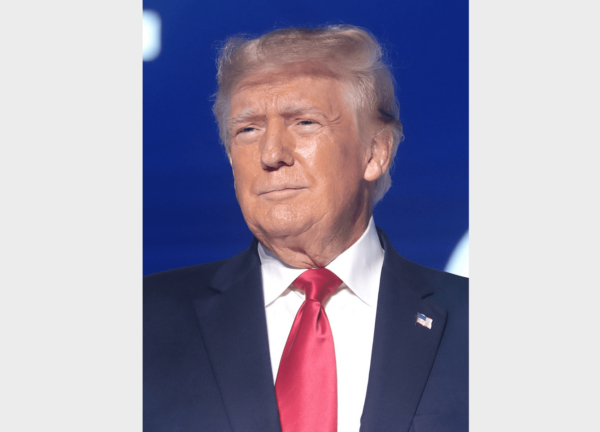A federal judge on Thursday dismissed a lawsuit challenging former President Donald Trump’s 2024 candidacy.
The lawsuit, noted publicly for its basis on the 14th Amendment, met its abrupt end when Fort Lauderdale-based Judge Robin Rosenberg ruled the plaintiff lacked standing to file the case in the first place.
However, the dismissal by may not be the final say in the matter. With the attention now shifting to other states, legal experts anticipate that states such as Michigan might have a more robust arsenal in dealing with the 14th Amendment challenge.
Despite the ruling in Florida, the legal battle seems to have taken a more complex twist in Michigan. A rising tide of legal scholars asserts that a clause established in the aftermath of the Civil War could apply to Trump due to his alleged efforts to overturn the 2020 presidential election and encouragement of supporters to descend upon the U.S. Capitol.
The potential legal debacle unfolds as two progressive nonprofits, Free Speech For People and Citizens for Responsibility and Ethics in Washington, promise court challenges if election officials in the various states allow Trump on the ballot, despite said objections.
“This could result in a series of lawsuits and appeals across multiple states that could culminate at the U.S. Supreme Court, possibly in the heart of the 2024 primary season”, Gerard Magliocca, a law professor at Indiana University, warned in an interview with the Associated Press.
The controversy throws an additional layer of legal uncertainty on a nomination process already mired in turmoil due to the front-runner facing four criminal trials. According to Magliocca, these cases could be active during the primary season and have varying outcomes before the Supreme Court delivers a final verdict.
Bringing to the fore Section 3 of the 14th Amendment, the scholars argue that anyone from Congress, federal or state offices or the military should be barred if they have taken an oath to support the Constitution and subsequently engaged in insurrection or rebellion against it or provided aid or comfort to its enemies.
Law professors William Baude and Michael Paulsen, in an article slated for publication in the University of Pennsylvania Law Review, interpret this constitutional provision to exclude those who sought to undermine lawful government authority post the 2020 election — “Taking Section Three seriously means excluding from present or future office those who sought to subvert lawful government authority under the Constitution in the aftermath of the 2020 election.”
In 2021, Free Speech For People dispatched letters to the chief election official in all 50 states advocating Trump’s removal if he sought the presidency in a future run. The group’s Legal Director Ron Fein noted officials are now starting to discuss the matter after years of silence.
“The framers of the 14th Amendment learned the bloody lesson that, once an oath-breaking insurrectionist engages in insurrection, they can’t be trusted to return to power,” Fein told the AP.
His organization sued to remove U.S. Rep. Marjorie Taylor-Greene and then-Rep. Madison Cawthorn, both Republicans, from the ballot ahead of the 2022 midterms, citing their endorsement of the Jan. 6 protest.
Yet, Trump has fought back, arguing that any attempt to prevent his appearance on a state’s ballot equates to “election interference.” He draws a comparison with the criminal charges filed against him in New York, Atlanta and by federal prosecutors in Washington, D.C., and Florida, terming them as a similar form of interference.
The debate was brought into sharper focus when John Anthony Castro, a lesser-known Republican presidential candidate from Texas, lodged a complaint in a New Hampshire court claiming that the 14th Amendment disqualifies Trump from the state’s ballot.
However, conservative law professor Michael McConnell from Stanford University cautioned that achieving a result in the case will not be a cakewalk.
“It’s not just about Trump,” he told the AP. “Every election where someone says something supportive of a riot that interferes with the enforcement of laws, their opponents are going to run in and try to get them disqualified.”
The critical fallout of this century-old legislative piece, the 14th Amendment, could shape the political battleground ahead of the general election. Ratified in 1868, it provided crucial civil rights to freed slaves and eventually all U.S. citizens but also served to exile former Confederate officials from Congress and government reins.
Edward Foley, a law professor at The Ohio State University, emphasized the urgent need for the Supreme Court to resolve the dispute prior to the general election.







